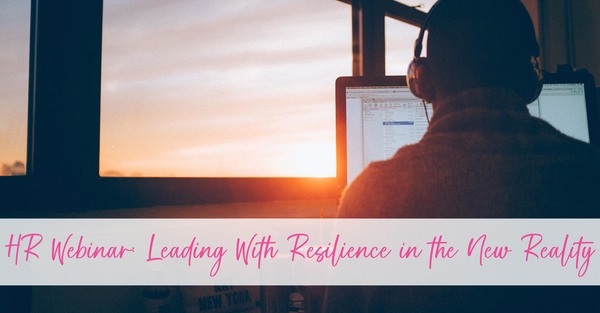Drop off your CV
We serve the global HR community through our offices located in Delhi, Hong Kong, London, New York, São Paulo and Singapore and have placed HR leaders in over 30 countries.
‘A resilient organization is calm, energized, engaged, focused and powerful’ Thi...

‘A resilient organization is calm, energized, engaged, focused and powerful’ Thierry Mochetti of The Resilience Institute recently ran a webinar with our UK team. With all of the anxiety around returning to the office and a huge shift in everyday working patterns with the new hybrid working strategies, Thierry shares practical tips and advice on how to lead with resilience and authenticity in the new reality we are currently living in.
Resilience can be defined in 4 key sets of skills; the ability to bounce back, grow your team and engage their strengths, build a connection to each other and ourselves and finally flow, finding flow is to find things that stimulate you and make you excited for the day ahead. Once you master these skills you are able to lead with resilience and build an authentic, resilient organization.
Thierry shared 3 key messages on how to achieve this desired skill set: Secure base camp; meaning to take time to yourself, rejuvenate and re-energize. Connect deliberately; it is difficult now more than ever to make those vital connections with virtual working but message your team just to check in, and make a point of talking about more than work. Nurture hope and shared meaning; by talking about hope and plans for the future, about what the company are doing long term, and what they aim to achieve.
Thierry continued to share a list of practical tips on how organizations can achieve a resilient workforce. Demonstrate care and show support: take time to understand your teammates, show you care, give them your time and listen to them. Know your team's non-negotiables: find out what activities make your team happy, and what gets them through a tough week. Actively seek and value everyone’s input: talk to each other, value the opinion of all of the team, not just those who are loud and always input their thoughts. A high-performing team is a team that communicates well. Replace judgment with powerful questions: some team members may not speak up because they are timid and fear judgment, if we replace the judgmental comments and glances with questions, this shows curiosity and allows you to understand their opinion.
If you still do not agree with their point explain why and ask leading questions such as; what else is possible? Are there any other solutions we can come up with together? What can we learn from this and take forward to the next task? Communicate with realistic options: be realistic about the situation and remain optimistic about your ability in the team to successfully face difficult challenges. Less is more: have the capacity to simplify tasks and not overdo it. Create a team growth narrative: talk about the difficulties you have gone through together and the successes you have made because of this. Connect my decisions to my company’s purpose: This allows people to know there is some kind of purpose behind the decisions that you make, showing how it brings value to the team and the organization. The Resilience Institute is dedicated to supporting individuals and teams so they thrive in times of change with an evidence-based, practical and integral methodology bringing together modern preventative medicine, positive psychology, emotional intelligence, and neuroscience.
If you would be interested in running a resilience session, like the webinar above, for your team or organisation, please get in touch with Thierry at thierry.moschetti@resiliencei.com. If you would be interested in partnering with Elliott Scott HR on a webinar for our HR Community or would like to discuss current opportunities or your hiring needs, you can get in touch with Kirstin Hunt, Director, Head of UK and Europe at kh@elliottscotthr.com
You can watch the event below: